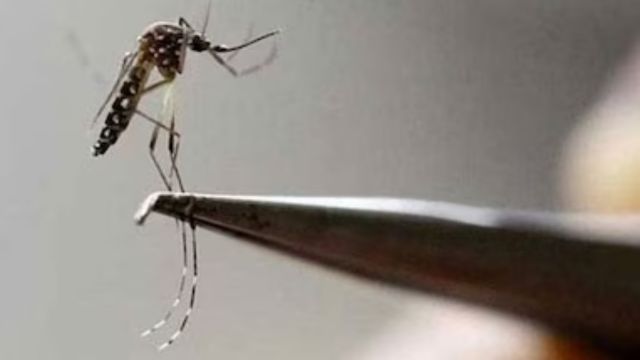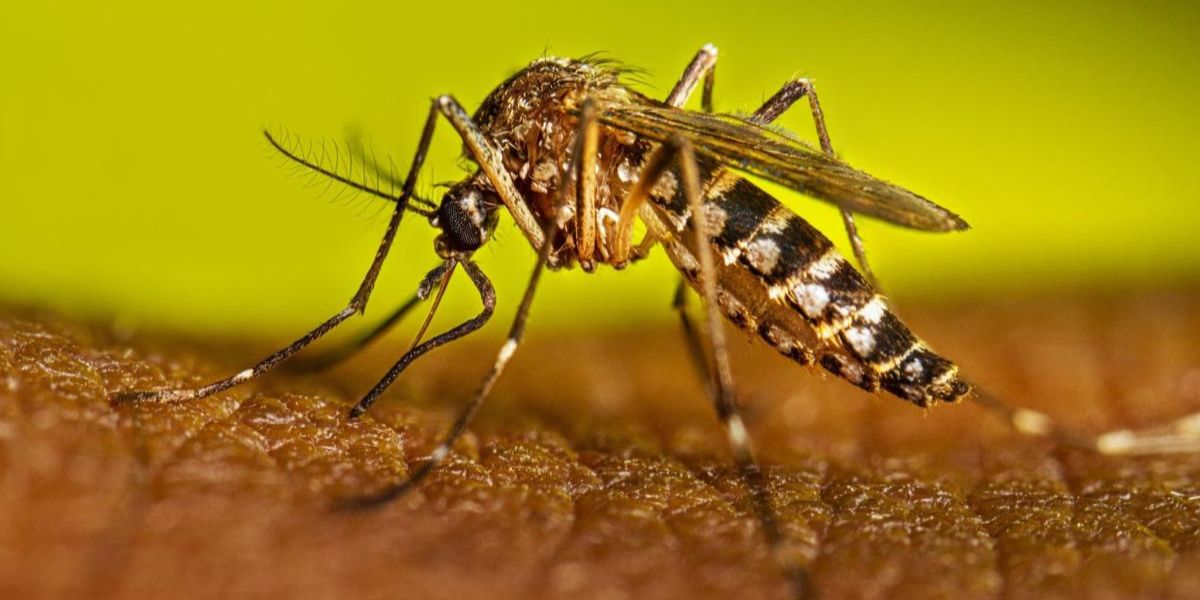WFCN –
As the mosquito-borne disease dengue fever experiences an unprecedented worldwide spike this summer, U.S. health officials are urging caution and have confirmed 10 cases in Texas.
The ten cases reported thus far in 2024 by the Texas Department of State Health Services originated from outside the country. However, they did issue a warning that mosquitoes in the south of the Lone Star State have been responsible for a limited number of cases in prior years.
In addition, the government warned that individuals tasked with storm cleaning should take precautions against mosquito bites because the standing water caused by Hurricane Beryl’s strong and widespread rainfall earlier this month provided ideal breeding grounds for the insects.

Unfortunately, a large number of mosquitoes in the Lone Star State can transmit diseases including dengue and West Nile. According to Jennifer Shuford, the state health department commissioner, although the majority of individuals will experience moderate symptoms, a small number will experience more severe sickness. Knowing how to defend oneself from mosquito bites is, hence, crucial for Texans.
SEE MORE –
Bed Bug Alert: How to Ensure Your NC Hotel Rpoom is Bug-Free This Summer
In a health statement released earlier this summer, the CDC said that the number of confirmed cases worldwide has reached an all-time high in 2024.
The Centers for Disease Control and Prevention (CDC) report 2,559 dengue cases across 45 U.S. states and territories so far in 2024. Among them, 218 were recorded in Florida, 143 in New York, and 40 in California. Following the reporting of 1,498 dengue cases, Puerto Rico proclaimed a public health emergency. Cases are anticipated to increase while the world stays hot, according to the CDC.
Dengue across the U.S.
According to the CDC, the nationwide number of dengue illnesses has already surpassed last year’s record-high tally of 1,848 cases. While the first two years of the COVID-19 pandemic saw a significant decline in cases, they have subsequently rebounded.
As the summer season coincides with increased U.S. travel overseas, the Centers for Disease Control and Prevention (CDC) warn that hot and wet weather might provide breeding grounds for mosquitoes that carry diseases.
The European Centre for Disease Prevention and Control reports that since the beginning of 2024, 80 countries and territories throughout the world have reported over 10 million dengue cases, with 5,000 fatalities. With 9.7 million cases documented thus far this year, double the number from 2023’s 4.6 million, the majority of the cases have been reported from countries in the Americas, according to CDC data.
There was one locally acquired case of dengue in Val Verde County among the 79 cases that swept the state of Texas last year, according to the health department. No deaths were reported in 2023, according to Department spokesman Lara Anton, who talked to USA TODAY.
Alerts and precautions for dengu
Infected individuals have a 1 in 4 chance of becoming ill, says the CDC. People can develop sick within two weeks after being bitten by an infected mosquito, and severe instances can be life-threatening within hours, necessitating medical care.
Rash, headaches, nausea, vomiting, and fever are all symptoms of dengue fever. Muscles, bones, joints, and eyes can all feel the agony.
Severe cases, which affect around 1 in 20 people, can cause shock, internal hemorrhage, and even death. Within hours, symptoms can worsen.
Within one to two days following the onset of fever, symptoms indicative of severe dengue typically manifest. Anyone experiencing any of the following symptoms should visit a hospital without delay, according to the CDC:
Difficulty or pain in the belly
- Experiencing vomiting (at least three times in a 24-hour period)
- Experiencing bleeding gums or nose
- Blood in the stool or vomit
- Feeling agitated or overly weary
In an effort to prevent the spread of dengue illness, a pest control officer fumigates a street in Jakarta with insecticides on May 8, 2024.
According to the CDC, avoiding mosquito bites is the most effective method of preventing dengue:
Put on some bug spray
Put on loose-fitting slacks and shirts with long sleeves. To stay indoors and avoid mosquito bites, use the air conditioner and window screens.
Eliminate potential breeding grounds by emptying containers of water near your home.
Anyone planning a trip to a region hit hard by a dengue outbreak should exercise extreme caution.
Get medical help if you’re experiencing dengue symptoms and have recently been to a region where the disease is spreading.
